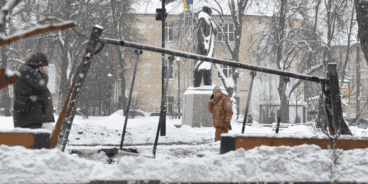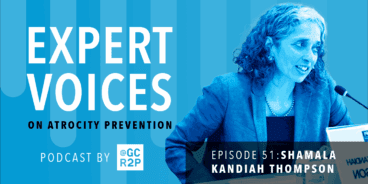
South Africa and Syria at the United Nations
Op-ed by Dr. Simon Adams on News24
Two weeks ago Russia and China vetoed a UN Security Council resolution on Syria. South Africa abstained from the vote. The resulting sound bites and political posturing made outstanding diplomatic theatre. But the real cost of the veto will be paid in Syrian lives.
For seven gruesome months the Syrian regime has used tanks, snipers and artillery to crush opposition to its rule. Protesters have been gunned down in the streets. According to the UN’s figures, since mid-March 3 000 lives have been lost. That is a Sharpeville every five days. Most countries within the United Nations are urging desperate action to halt the atrocities. China and Russia opted instead to cripple any meaningful response.
The ostensible justification was that Russia and China were nervous that UN-authorized coercive measures (including sanctions) might eventually lead to Syria becoming “the next Libya.” The veto was, therefore, also a challenge to the UN notion of the international community’s “Responsibility to Protect” (R2P) all people from war crimes, ethnic cleansing, genocide and crimes against humanity.
The ugly truth is that Russia would have vetoed Tuesday night’s resolution even if the Libyan intervention had never happened and R2P didn’t exist.
During the Cold War the Soviet Union was Syria’s major supplier of military hardware. After 1971 the Syrians allowed the Kremlin to establish a naval base at Tartus – the Soviets only military outpost in the Mediterranean and Middle East. With the end of the Cold War Russia worked hard to keep Syria as a client. Syria’s massive financial debts to Russia, due in part to excessive arms purchases, were largely forgiven in 2005.
The seduction worked. In 2008 Syria purchased new missile systems and fighter aircraft from Russia. The Syrian regime currently has $4bn in active arms contracts with Russia. The Russians are also expanding their Syrian naval base, which will be fully operational by 2012. Tartus is a key component of Russia’s plan to rebuild a global military presence befitting a recovering superpower.
Which brings us back to the veto. One cannot help but think that Russia’s real objection to the proposed UN resolution was the possibility of an arms embargo. It is, after all, largely Russian guns, tanks and artillery that are doing the killing in Syria. In the absence of a UN embargo or sanctions, Russia is conveniently “obliged” to honour existing contracts with its closest Arab ally.
China’s stake in this is only slightly less unsavoury. Traditionally nervous about any UN action that impinges upon national sovereignty, China has used its veto three times in the last 10 years. All three times it has voted with Russia. Lacking any direct interest in Libya and facing a world outraged by Qadaffi’s crimes against his own people, China abstained from the crucial Security Council resolutions that led to the Libyan intervention.
But China also has considerable interest in the survival of the al-Assad regime, being the country’s second largest non-Arab investor. Trade is mostly a one-way affair, with massive amounts of cheap Chinese goods flooding the Syrian market. China has invested heavily in the renewal of Syria’s aging energy infrastructure and also assisted with missile technology. Russia’s lobbying emboldened the Chinese to veto as well.
Global action to stop crimes against humanity should not be held prisoner to dubious interests and convenient alliances. Since the Responsibility to Protect was unanimously endorsed (including by South Africa, China, Russia and Syria) at the 2005 UN World Summit, there has been an evolving consensus that no permanent Security Council member should use its veto in a case where mass atrocity crimes are being perpetrated. But abstaining in such a case is only slightly less distasteful.
As a former activist of the international anti-apartheid movement, South Africa’s abstention was a bitter disappointment to me both personally and professionally. I understand the ANC’s concerns that Nato “overstretched” its R2P mandate with regard to Libya. But following last week’s veto at the UN, Syria’s ambassador smiled and thanked his Chinese and Russian allies. He then accused the United States of being a “party to genocide” in the Middle East and attacked Israel.
The long suffering people of Syria deserve better than this. In preventing the United Nations from upholding its Responsibility to Protect, China and Russia have placed themselves on the wrong side of history. The veto was a victory for impunity, inaction and injustice. But whither South Africa?
As South Africa and its fellow IBSA “abstainers” – India and Brazil – meet in Pretoria this week the uncomfortable question of what role South Africa wants to play on the Security Council remains unanswered.
Perhaps it is time to return to the words of Madiba: “To be free is not only to cast off one’s chains but to live in a way that respects and enhances the freedom of others.” As relevant to Syria today, as it was to the people of South Africa when he said it.
Related Content


Expert Voices on Atrocity Prevention Episode 51: Shamala Kandiah Thompson
